Evgeniy Samoylov
Nacimiento : 1912-04-15, St. Petersburg, Russian Empire [now Russia]
Muerte : 2006-02-17

Venice, eighteenth century. The young Rosanna, widowed on her wedding day, discovers that she is the sole heir to an enormous patrimony, becoming in this way the most coveted party of the Serenissima.

Pimen
Praised for its fine photography and production design if not its narrative, Sergei Bondarchuk directed this adaptation of the tale by Alexander Pushkin. Boris Godunov came to the Czarist throne at the end of the 16th century, after the original heir to Ivan the Terrible had died. At first, things went well for Godunov (played by Bondarchuk), but when the Russian people began to believe he had killed Ivan the Terrible's son in order to gain the throne, an alliance sprang up against the new Czar. Events continued to spin out of control as a young monk was presented as the son Godunov had supposedly killed. Now he was openly accused of failing an assassination attempt, which seems to be even worse than succeeding. In addition to these woes, Boris Godunov began to suffer serious health problems. So much for the joys of kingship.

Colonel Marchenko
La película transcurre en Rusia en julio de 1942 durante la Segunda Guerra Mundial. Las tropas nazis se aproximan a Stalingrado y los rusos están exhaustos y sobrepasados en número. Pero después de una batalla sangrienta, los invasores nazis son detenidos en Stalingrado.
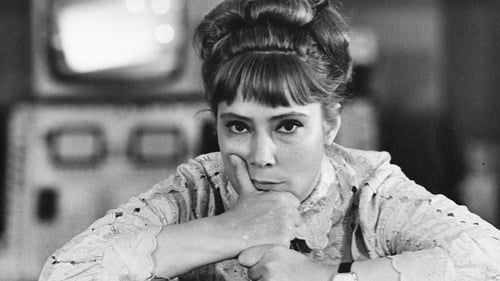
Mikhail Petrovich
Based on the novel by Natan Rybak “Soldiers Without Uniforms”. Director of a research institute engaged in research in the field of nuclear physics, Maxim Nerchin is testing a new research method. And although the method did not justify itself, Nerchin with unreasonable confidence began to build a more powerful installation... He uses almost all the institute's funds to create it and is so sure of success that he loudly announced it at a foreign symposium, thereby causing special attention to his institute on the part of those American circles who are primarily interested in creating weapons that bring death and destruction...

Savva Abramovich Petrushin
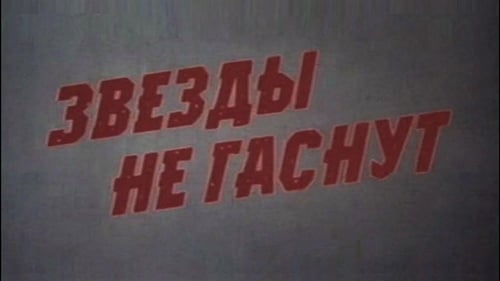
Chicherin
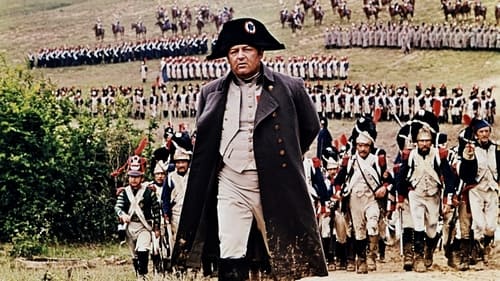
Cambronne
El 18 de junio de 1815 tuvo lugar la batalla de Waterloo, en la que el ejército de Napoleón Bonaparte fue derrotado por fuerzas británicas, holandesas y alemanas, comandadas por el duque de Wellington. Esta película recrea aquellos hechos que se produjeron con la presencia en la sombra de Luis XVIII.

Writer
Based on the novel of the same name by Oleksandr Dovzhenko. About the childhood of the famous Soviet film director Oleksandr Dovzhenko, who was born on the ancient lands of Chernihiv, along the banks the Desna. The film consists of two parts. The first is the world shown through the impressions of the six-year-old Sashko. The second is the recollections and reasoning of Sashko, now an elderly colonel who liberates his native village during the war.

A Russian war correspondent is drafted into the war and finds himself in the middle of battle. When he loses his party card, however, he is treated as a deserter until he finds help from a kind man. This Soviet war feature was considerably outspoken for the time as it addressed issues such as anti-Stalinism, Siberia and the inhumanity of war. Adapting his screenplay from a book by Constantin Simonov, Alexandre Stolper was responsible for writing as well as directing.


Pavel's father
AYoung engineer Pavel Kaurov goes to his first destination — to the port city of Sibirsk. He is appointed to lead a group of cranes: gantry and floating. After several troubles Pavel mastered the port work and received a serious assignment. Meanwhile, his fiancee Nina, an architect by profession, is arriving in Siberia. However, besides Pavel, fellow students came to the station to meet her — Petunin's brother and sister, in whose house she is staying. Soon Annushka, who has long loved Pavel, arrives. From that day on, he had trouble after trouble. After a crane accident, which happened through his fault, the hero pulls himself together and does everything to regain the confidence of the brigade...

Savych
Soviet film.
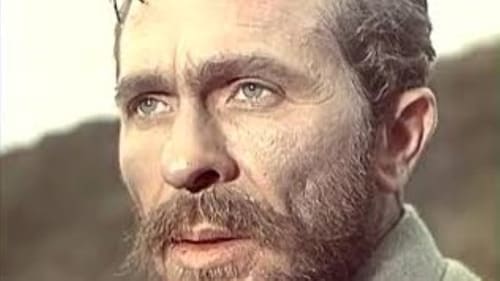
Bodrov
Life and times of Aleksa Dundic, a volunteer in the Serb army during WW1, who later became a legend by fighting for the Red Army in the Russian Civil War.

A young couple is traveling to the Black Sea with their car planning to have a wedding on the way.
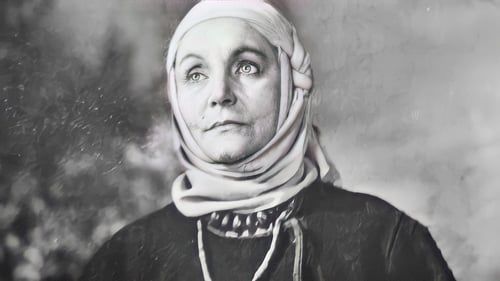
Bohun, colonel
In the middle of the 17th century, Ukrainian peasants and Cossacks rose up to fight against the Polish gentry rule. About the events of the National Liberation War in Ukraine under the leadership of Bohdan Khmelnitsky, who with a firm hand led the insurgent masses to an alliance with Russia.

Aleksandr Aganin
The local doctor Yelizaveta Maksimovna is a beautiful woman and a wonderful sympathetic person. She is lonely, although she is cared for by a confident and promising colleague. Yelizaveta Maksimovna has one patient, a manly, full-energy ship builder Yershov, chained to the bed with a paralysis of both legs. All doctors recommend him rest, and Elizaveta Maksimovna advises to work and not feel sorry for herself. Yershov with all his heart falls in love with his doctor, and she loves him, but she does not dare to say her feelings. Ershov thinks that he has no hopes, but...

1920. Western countries are trying to use the Bukhara khanate — a former protectorate of tsarist Russia — to fight the Soviet regime. Arrived in Tashkent by M. V. Frunze and V. V. Kuibyshev to organize the masses to fight counter-revolutionaries and agents of foreign intelligence services.

Gen. Skobolov
Heroes of Shipka was the first solo effort for Soviet director Sergei Vasilyev, who had previously collaborated with his late brother Georgi. As head of the Leningrad Film Studios, Vasilyev was obliged to traffic in propaganda, but he never forgot how to make his material entertaining. The film is set in 1887 during the pivotal battle between the Russians and the Turks at the Shipka Pass. Stressing the solidarity of the Soviet states, tribute is paid to the courageous Bulgarian volunteers who helped the Russians fend off their mutual enemy. American critics were impressed by Heroes of Shipka, but felt that the film would have been twice as effective had it been lensed in Cinemascope rather than "standard aspect."

Gleb's Father
Group of youngsters find a sunken sailboat used by guerrillas during WWII, raise it, repair it, and sail out to sea for adventure.

Nikolay Speshnev
Growing up in a Ukrainian peasant family, knowing all hardships of serf life, young artist and poet Taras Shevchenko in the years of study clearly identifies the meaning of true art, which is to serve the interests of the people. The poems of Shevchenko are imbued with love for the common people. Fiery freedom-loving creativity of Taras Shevchenko is known throughout Russia. Nicholas I exiles the poet to the distant Caspian fort where he is to serve as an ordinary soldier and is banned from writing or drawing. In the poet's difficult days he has the support of Ukrainian soldier Skobelev, Polish revolutionary Sierakowski, captain Kosarev and the commandant of the fortress, Uskov. For the sake of his release Chernyshevsky and Dobrolyubov are hard at work. And so, the sick and aged Shevchenko is finally free. Together with Chernyshevsky and Dobrolyubov, he dreams of a bright future of the motherland, when the Russian and Ukrainian peoples throw off the chains of slavery.


сaptain Ivan Veshnyak

In the family of the driver Skvortsov on one of the outskirts of Moscow growing son Andrew, the future designer of high-speed firearms, but for now — inquisitive and hard-working boy, dreaming of studying. Ahead of the revolution and the Great Patriotic war…

Amalgama
A story about the boys and their life during the WWII. Based on Lev Kassil book.

Lt. Burunov
A biography of a famous Russian Admiral Pavel Stepanovich Nakhimov.
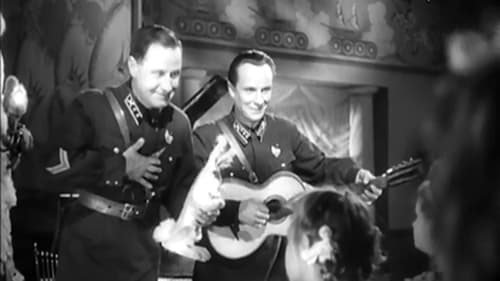
Lieutenant Vasily Kudryashov
Designed as a successor to "They Met In Moscow", with the same director, star and composer, "Six P. M." (1946 American release title) has two artillery officers meeting an attractive girl in Moscow between battles. One falls in love with her and they vow to meet in Moscow on a bridge at Six P.M. when the war ends. The war puts them on diverse trails, but the pledge is fulfilled against a setting of Moscow's famous fireworks displays.

Kasyanov
The Armenian national hero, David Bek, leads a major Armenian uprising against Safavid Persia in the Syunik region in the 18th century.

The film is about the struggle of Czechoslovak patriots against the Nazi invaders during the years of fascist occupation. The plot of the film is based on actual events that were reported after that time.

The composition includes two short stories: "The Swineherd" (based on the fairy tale by H.C. Andersen) and "Heaven and Hell" (based on the short story by P. Merime).

Пётр Колчин
The plot is built around two charming sisters — a strict, wayward Galina, an assistant professor of mathematics, and a windy, frivolous student Shurochka. Despite the fact that the girls are so different, they are looking, of course, for one thing — love. The events take place in the summer pre-war Moscow and in the country where both sisters go: one in order to prepare for the re-examination, the other — to conduct math classes with the military from the Yuryev Camps located near the dacha village.
Funny and difficult situations, intrigues, tears, joy — all this will be experienced by young girls on the way to their happiness.

Aleksei Nikolaevich Lebedev
Tanya Morozova, an illiterate but industrious textile factory worker, finds happiness through her education and the Stakhanovite movement. She becomes a shock labourer and ascends through the Party ranks, ultimately being elected as a member of the Supreme Soviet.

(archive footage)

Nikolay Shchors
The year is 1919. German troops retreat from Ukraine. The Directory, the Ukrainian national government lead by Symon Petliura, takes control of Kyiv. Meanwhile, the Bolshevik division commanded by Mykola Shchors is marching on the capital. The Bolsheviks capture the cities of Vinnytsia, Zhmerynka, and others one by one, but lose Berdychiv to Petliura’s forces. They are demoralized by the defeat. By his personal example of courage and military skill, Shchors inspires the retreating Red troops and leads them to victory over the enemy.


Grigoriy Rybin
A supposedly ordinary woman’s personal triumph and tragedy is explored in Igor Savchenko’s 1936 Sluchainaya Vstrecha (Accidental Meeting). Irina – the best shock worker in a provincial children’s factory – develops a relationship with the newly arrived and charming physical culture instructor named Grisha. Soon we learn that Irina is pregnant. Disappointed and angry on hearing her news, Grisha asks her about what will now happen to all their dreams.























